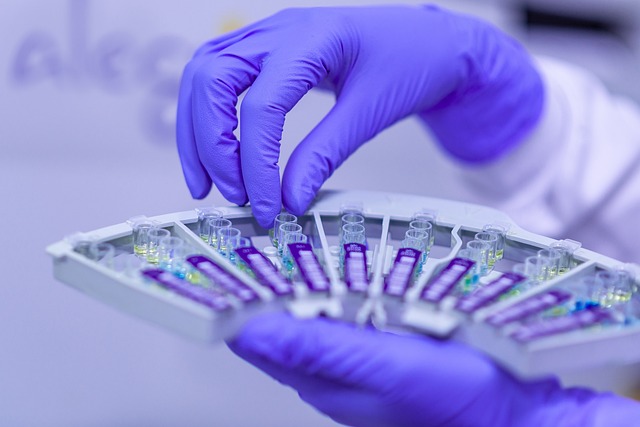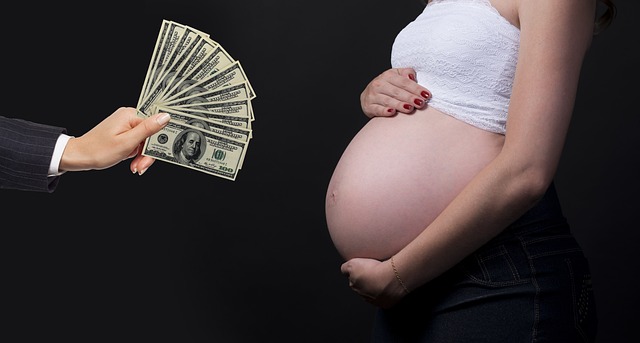Many couples want to have their own child. Unfortunately, however, it is not always possible for some couples to do so naturally. As a result, some will decide for artificial fertilisation, while others may wish to adopt. In many countries, couples wishing to have a child also decide to go down the road of surrogate motherhood. The issue of surrogacy is, and remains, highly controversial.
WHAT IS SURROGATE MOTHERHOOD, AND WHY IS IT QUESTIONABLE?
A surrogate mother is understood as being a woman who makes her body available to bear a child for payment. There are a range of different forms of surrogate motherhood. Depending on the situation, there are aspects such as “artificial/real”, “full/partial” and “genetic/bearing”. In a genetic surrogacy, for example, the woman bearing the child is genetically related, meaning her own egg cell is used. This contrasts with a bearing surrogacy, when an external egg cell is implanted. There is also an altruistic form of the process, when a family member or friend decides to bear the child without financial payment, and based only on a wish to help.

The first officially publicised case of commercial surrogacy took place in England in 1985, when the English woman Kim Cotton let herself be artificially fertilised for a childless couple. The couple remained anonymous to Cotton, and paid her 12,000 euros for the fertilisation, pregnancy and birth. The case sparked a global debate over the ethical concerns and legal guidelines. Surrogate motherhood is banned in Austria. The reasons for this include the ethical concerns and the legal situation, which states that the mother of a child should be the woman who has borne the child. The ethical concerns, therefore, are based on the fact that the woman has sold her body, that the child can be considered an ordered good, and that the practice is frequently associated with the exploitation of women. Despite this, it is easy to get around the ban by using the services of a surrogate mother abroad.

Going into the aspect of the child in greater detail, a surrogacy can be viewed as “ordering” the child. This is because the decision to become a surrogate mother and use artificial fertilisation is taken before the entire practice actually begins. This contrasts with adoption, when the pregnancy already exists at the point in time the decision is made. In countries where commercial surrogacy is permitted, access to the process is usually only available to certain demographic sections of the population. Normally, surrogacy can cost anything from a middling five-figure amount to well over 100,000 euros – the sort of money available to very few couples.
These aspects of the exploitation of and discrimination against women are frequently accompanied by people trafficking. More and more articles are reporting just how bad conditions at fertility clinics really are. Just last year, ORF online and ZEIT ONLINE reported the closure of a fertility clinic in Crete. In Greece, altruistic surrogacy is permitted, with a paid allowance. Since 2014, it has also been permitted in Greece to have a child born by foreign women without Greek residence. The clinic used the legal situation to its own advantage. A total of 182 cases were documented in which women from Moldova, Ukraine, Georgia, Romania and Bulgaria were taken to Crete to be exploited as surrogate mothers and egg cell donors. In addition to this, adoption papers and medical files were forged, and in more than 400 cases, invitro fertilisation was said to have been faked. The director and founder of the clinic was alleged to have developed an international network of female procurers to bring women “in need of protection” to Greece under false promises. Carrying a child to term is said to have cost between 70,000 and 100,000 euros, while the surrogate mother received just 300 to 600 euros a month. In August of last year, police succeeded in uncovering the abuses, and arrested the director and eight other members of staff.
BOOM IN HOLLYWOOD
Kim Kardashian, Khloe Kardashian, Paris Hilton, Naomi Campbell, Cameron Diaz, Robbie Williams, Cristiano Ronaldo and many other household names have all decided to use the services of a surrogate mother in recent years. The reasons for this are not usually made public. The fact that many stars are deciding to take this route, however, means surrogate motherhood is being glamourised. The only publicity usually focuses on how much of a blessing it is that surrogate mothers exist, and that it is the only way to have a genetically related baby.

What is not known, however, is what conditions are in place in the background. What is included in the contract? Is the surrogacy official or unofficial? Were the parents able to decide the child’s gender? Were decisions taken to edit out unwanted biological features according to the existing DNA? What happens if it is an unwanted multiple pregnancy? Who decides if the mother wants to have an abortion? How much of a legal voice does the surrogate mother have? Is the surrogate mother also paid if she has a miscarriage? Many of these questions also have an ethical aspect –closing the circle to the questionable aspects of the practice once again. It also shows once more that only certain demographic groups have access to a surrogate mother, as wealthy stars can easily afford to pay the large amounts of money involved. In America, there is no single, country-wide law governing surrogacy – it differs from state to state.
Other regions where surrogate motherhood is booming include Thailand, India, Colombia, Ukraine and Latin America. Estimates suggest the surrogacy industry is set to be worth around 129 billion US dollars by 2032.
NEW EU-WIDE REGULATIONS
In October 2023, the European Parliament agreed that forced marriage, illegal adoption and surrogacy for reproductive exploitation should also count as people trafficking. It is important to note here that surrogacy is not mentioned in the wording of the law, but forced surrogacy – if a woman is forced to bear a child for another couple, therefore, and subjected to reproductive exploitation as a result. This is designed to ensure that member states can proceed against as many forms of exploitation as possible. As well as this, an increased minimum penalty is set to come into force for people traffickers.
Translated by Tim Lywood
#Leihmutter #Leihmutterschaft #Menschenhandel #EU-Gesetz #Kinderkauf #AgainstHumanTrafficking #GegenMenschenhandel #EndExploitation #EndTrafficking #HopeForTheFuture #Österreich
